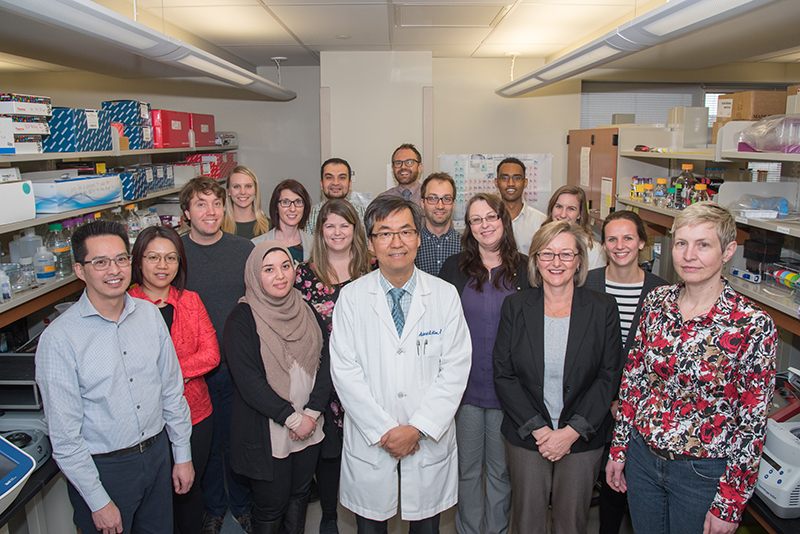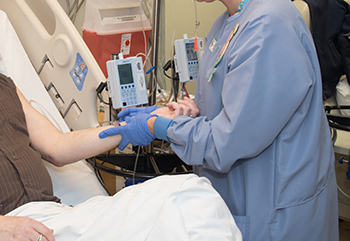
Your IMPACT
Research is showing more and more that there is rarely such a thing as a “one size fits all” medication. A person’s genetics dictate the type and volume of medication their bodies can process. This is how personalized medicine is changing lives.
The Personalized Medicine program at LHSC looks closely at those genetic differences between patients and, in doing so, aims to provide the right dose of the right drug at the right time. This method of delivery is safer for patients, and more cost-effective for the health care system as a whole – which benefits us all.
This would not be possible without the visionary support of donors, who help fund critical research and necessary equipment like mass spectrometers, which are used daily in the clinic to measure the safety and efficacy of medications.
Personalized Medicine and Cancer Care
The Personalized Medicine team has created a blood test for cancer patients who have a deficiency in a specific gene (DPYD). These patients can not process certain chemotherapy drugs, which can be deadly. Dr. Kim and his team have provided the testing to more than 1,000 patients pre-chemotherapy. Of this group, they prevented severe toxicity and may have saved the lives of at least 22 people.

Chemotherapy drugs can be very harsh for certain people, causing low blood counts, a compromised immune system and – if the DPYD gene is deficient – cause sepsis, a potentially fatal infection of the blood that can lead to multi-organ failure. Patients with sepsis must be rushed to the emergency room and usually require several days in the Intensive Care Unit. This not only causes terrible stress for patients and their families, but it also adds to the strain on the health care system. But thanks to the donor-funded Personalized Medicine at LHSC, it can easily be prevented with a quick genetic blood test.
“There’s sufficient and longstanding evidence for nearly 30 years that a small number of patients get life-threatening toxicity from chemotherapy,” Dr. Kim says. “Our efforts have been to prevent this from happening, and our donors should take pride in knowing that by believing in our work, they are changing the standard of health care.”
Other Life-Saving Projects
Blood Thinner (Anti-Coagulant) Clinic
The Personalized Medicine team has a well-established clinic for several patients on blood thinners, most of whom have a condition called atrial fibrillation — an abnormal heart rhythm.
“For many patients, our clinic has the unique ability to measure the blood level of these blood thinners because a lot of our patients have different tolerances,” Dr. Kim says. “Our ability to measure those levels means that we can alter the dosage to make the drug as safe as possible to prevent life-threatening events like strokes or severe bleeding.”
Testing for Patients with Gastrointestinal (GI) Illnesses
In the past year, the Personalized Medicine team has introduced a test that can predict the likelihood of pancreatitis — inflammation of the pancreas — as a side effect from the drug Azathioprine, used commonly for Inflammatory Bowel Disease.
“All of the GI doctors in our city send their patients to our clinic,” Dr. Kim says. “Again, we hope to prove this as a standard for other centres because the scientific evidence for the testing is very strong.”
Testing for Transplant Recipients
Tacrolimus is a drug used after an organ transplant to prevent rejection. Depending on their genetics, some people metabolize this drug very quickly, rendering it ineffective. The Personalized Medicine team tests patients to see if they will break down the drug too quickly and, if so, patients are prescribed a higher dose that remains within safe parameters.
Thank You
Other patients helped through LHSC’s Personalized Medicine program include those with cardiovascular issues and mental illness, to name a few.
“We’ve been able to meet demand without losing quality,” Dr. Kim says. “Without donor funding, we would not be this far ahead.”
